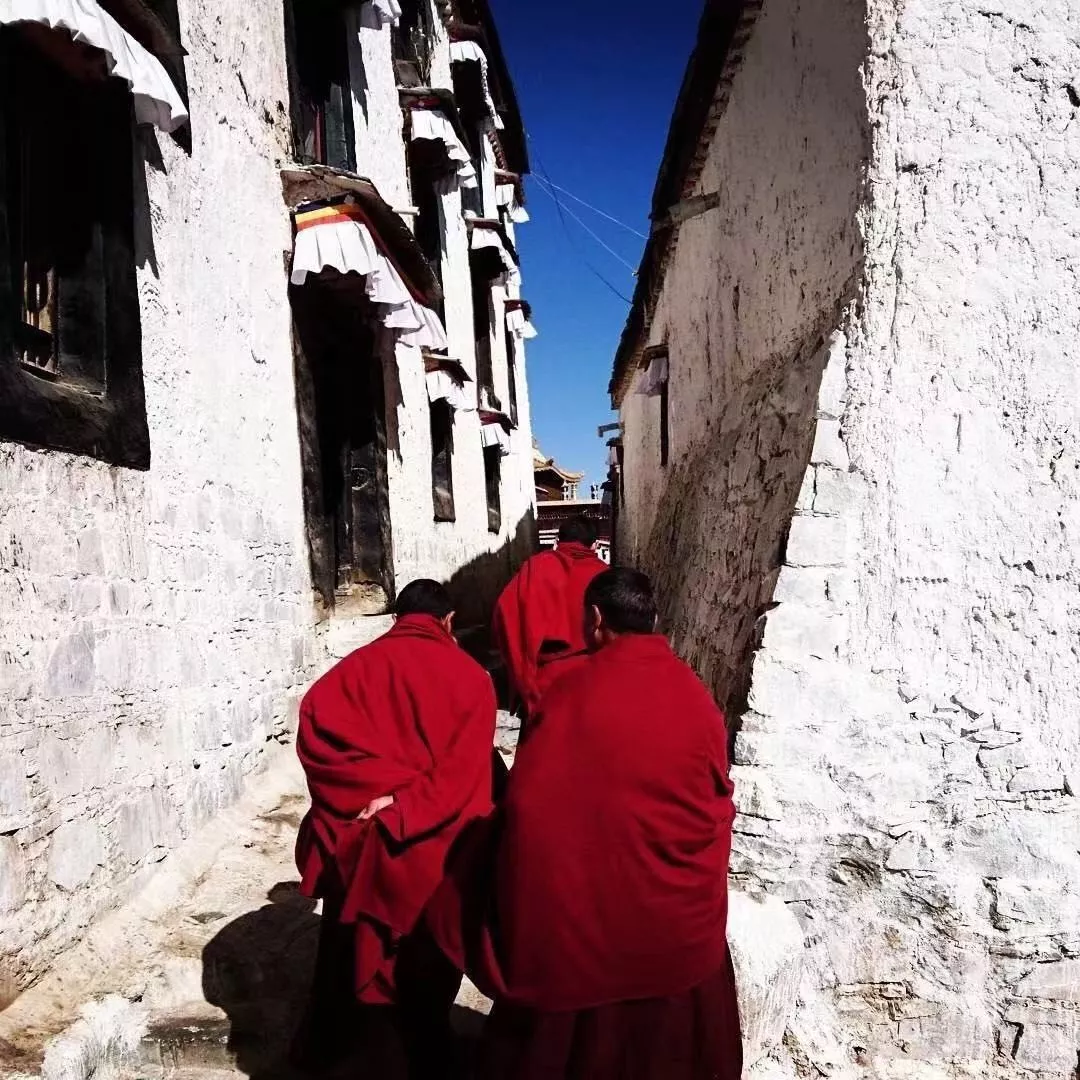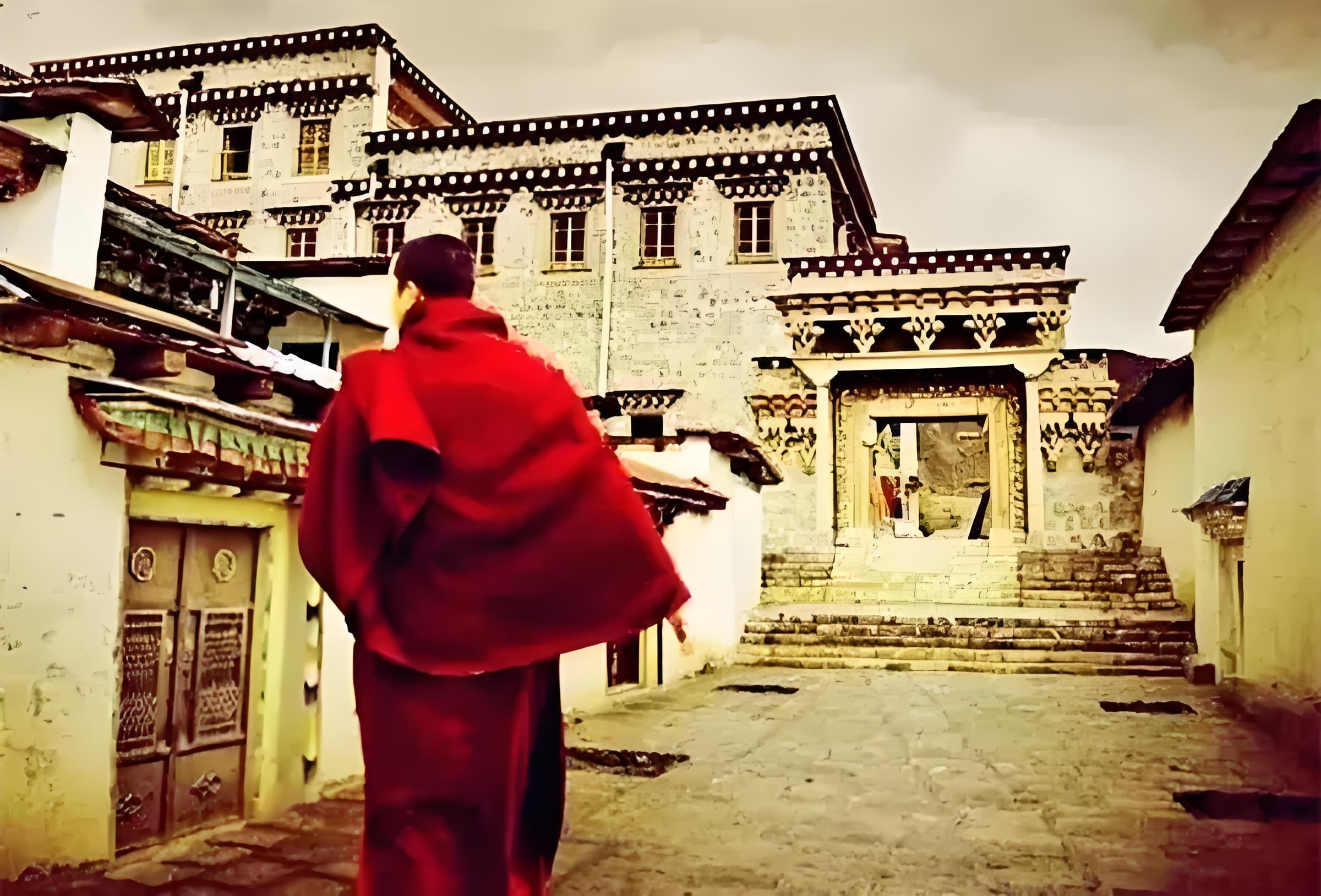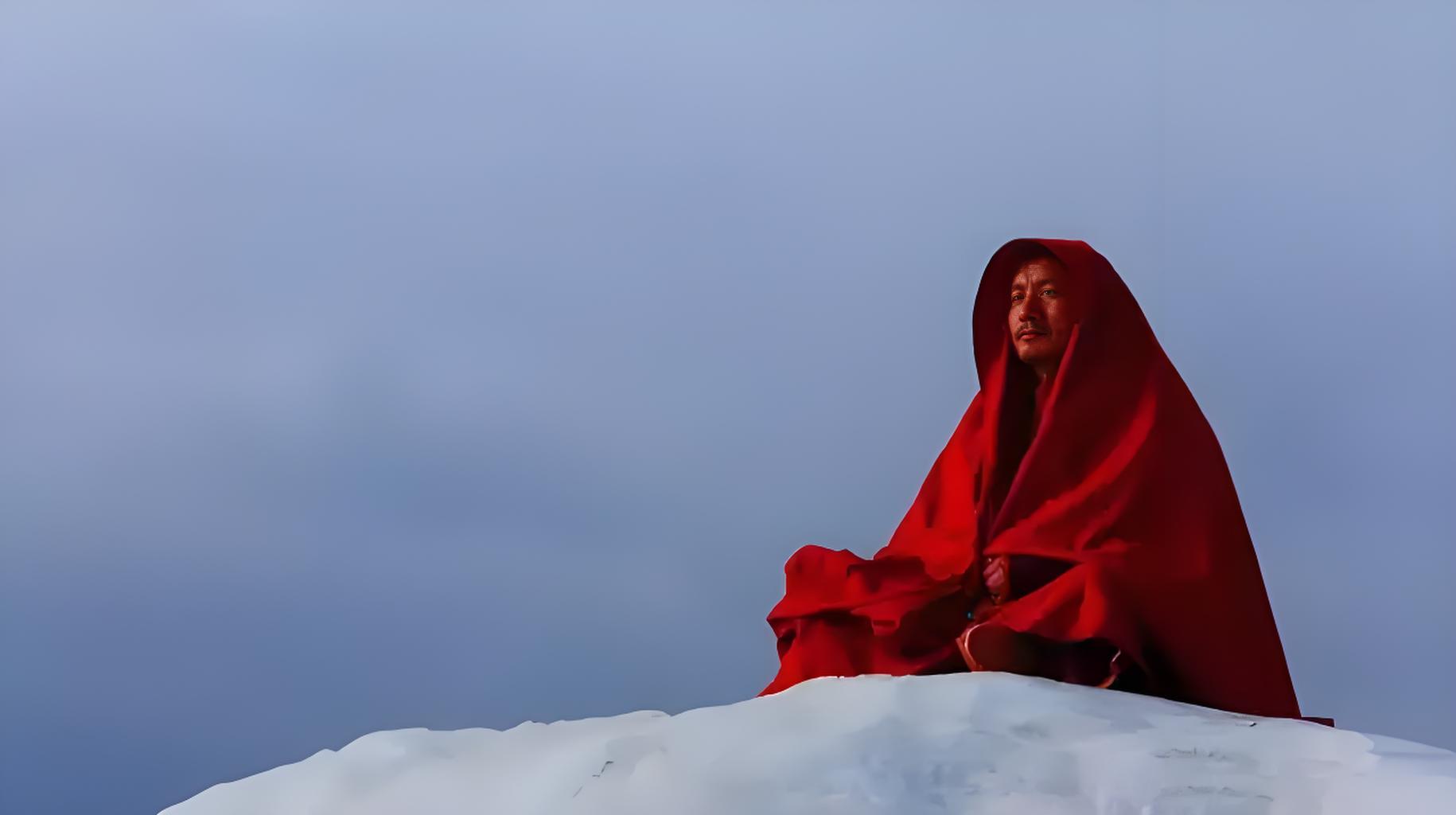Lama is an honorific title for monks in Tibetan Buddhism, also used to refer to elders, senior monks, and highly accomplished practitioners. The term “ma” signifies a boundless compassion, like a mother caring for her child. Thus, a “Lama” embodies the highest form of loving-kindness. The title “Lama” is also synonymous with “Guru” or “Monk.”
The Lamp Offering Lama
One such lama was a lamp attendant in a monastery. He had a bad habit of secretly taking the butter offered by the faithful to the Buddha statues and selling it in town for profit.
Once, the monastery was preparing to host a large Dharma assembly. Before it began, high-ranking lamas and Rinpoches from various places arrived at the monastery. One day, a renowned treasure revealer was circumambulating the main hall when he saw the lamp attendant and told him, “Your life is not long; in a few days, you will die.”
The lamp attendant was terrified upon hearing this. He knelt before the treasure revealer and said, “Master, please save me! You must save me!”
The treasure revealer responded, “That is not the only problem. Because you have been stealing and selling the butter offered by the faithful, you will fall into hell after death.”
Upon hearing these words, the lamp attendant was even more shocked. He knelt before the treasure revealer, begging him to save him. The treasure revealer shook his head and said, “I cannot save you. However, I have a method. You can try it; perhaps there is still hope.” He then whispered a few words into the lamp attendant’s ear.
The next day, when the assembly officially began, at noon, when the monks were being offered a meal in the main hall, the lamp attendant came to the hall, offered all of his possessions to the sangha, and requested to repent in front of everyone. The lamp attendant prostrated three times and said, “I am a lamp attendant, and I will die in a few days. Furthermore, because I have often taken and sold the butter offered by the faithful, I will fall into hell after my death. I repent my misdeeds in front of the Sangha.”
The lamp attendant continued, “Today, I offer all of my possessions to you, only asking for one thing in return. I know that my misdeeds are severe, and it is unlikely that I will be reborn in a good realm. I beseech you to dedicate the merit of your chanting to me and bless my wish so that it can be fulfilled.”
The monks and teachers stopped eating and listened carefully to what he was saying. The entire hall was silent. He said, “I hope you will bless me so that in my next life I will be reborn in a place with lush pastures and many cows. As for me? Please bless me so that I will be born there as a bull.”
Upon hearing this, all the monks and teachers burst into laughter. Some monks even fell off their seats. In the end, the lamp attendant did not die. From then on, he practiced diligently and ultimately achieved a great liberation.
The lamp attendant was originally supposed to fall into hell and suffer. However, due to his sincere repentance in front of the sangha and the joy he brought to the monks and teachers, his karmic obstacles were cleared, and his lifespan was extended. Therefore, repentance and bringing joy to others are good ways to eliminate karmic obstacles and increase blessings.
The Silver Coin Lama
In the Garze Tibetan region, an old lama passed away. The monks who had practiced with him came to his residence to perform rituals for his transcendence.
Around the forty-ninth day after his death, a dog in the lama’s residence gave birth to a litter of puppies. After a few days, when the puppies could open their eyes, one of them would constantly bark at the wall and stare at it for long periods of time.
An elderly lama noticed the unusual behavior of the young puppy. After observing it for several days, he discovered that the puppy hardly left the wall.
The elderly lama was curious and wanted to know what the puppy was looking at. As the ritual was coming to an end, the elderly lama used a wooden stick to scrape off the cow dung on the wall. He found a hole in the wall, also sealed with cow dung. The lama removed the cow dung that was covering the hole and discovered dozens of silver coins inside.
The elderly lama then understood everything. Because the deceased lama had been attached to these dozens of silver coins and could not let go of them, he was reborn as a puppy just twenty days after his death.
The Lotus Lama
In Tibet, a lama was meditating alone on a mountain. During a siege, some foreign soldiers discovered this lama.
As one soldier was about to shoot the old lama, the lama said to him, “Could you wait a moment?”
“You are going to die sooner or later, why wait?” the soldier said.
Before the soldier could finish his words, the lama rose into the air, flew up several meters, and then instantly fell back down, landing in a cross-legged meditation posture. It turned out that he had already entered meditation, his consciousness had left his body, and he had passed away. There was still a glistening tear in the corner of his eye.
Why did the lama pass away in an instant?
According to Buddhist scriptures, anyone who kills an Arhat or causes a Buddha to bleed will fall into Avici Hell. This lama, out of compassion for the person about to kill him, to prevent him from committing an evil act, chose to end his life earlier. The tear in his eye was the most beautiful dewdrop on a lotus flower.
“Could you wait a moment?” This sentence is full of compassion, with not a trace of resentment or anger. If you repeat it quietly, the thought of this scene will bring tears to your eyes. It conveys an incomparably calm and gentle tone.
In this world, what is there to be angry about? In this world, is there anyone to hate? As long as we also become a pure lotus, always bearing compassionate and glistening dewdrops, then what defilement can taint us? content_copy download Use code with caution. Text



